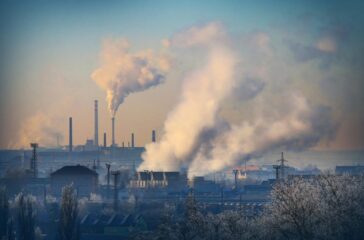“Explosive growth’ in petrochemical production linked to increases in cancers and other diseases in new report
By Carey Gillam
Chemical pollution tied to fossil fuel operations is not only driving harmful climate change but is also posing dire risks to human health at levels that require aggressive private and public efforts to limit exposures, warns a new analysis published in the New England Journal of Medicine on Wednesday.
The article authored by Tracey Woodruff, a professor at the University of California San Francisco (UCSF), cites data from dozens of research studies highlighting what Woodruff calls a nexus between “explosive growth” in the petrochemical industry that includes forecasts for plastic production to grow almost three-fold by 2050, and data showing increases in cancers and other diseases in young people, particularly reproductive cancers in women.
Between 1990 and 2019, rates of neurodevelopmental disorders, diabetes, chronic respiratory disease, and certain cancers are among the non-communicable diseases that have increased, with petrochemicals used in producing plastics and other products among drivers of the growth, according to the paper.
“Numerous medical societies, government agencies, and systematic reviews have concluded that exposure to chemicals and pollution… is an important risk factor for multiple diseases and health inequities and probably contributes to these increases,” the report notes, adding that increases in disease and petrochemical production at the same time “alone cannot be interpreted as causal.”
Doctors and patients need to acknowledge and address the risks, and work to reduce exposures, while regulators need to strengthen chemical evaluations and oversight, said Woodruff, who directs the UCSF Program on Reproductive Health and the Environment and the Environmental Research and Translation for Health (EaRTH) Center.
“This is really important… one of the major factors driving climate change is also increasing our exposures to chemicals that are adversely impacting health,” she said. “Typically people say cancer is a disease of the aging, but now we’re seeing it increasing in people under 50.”
 EWG
EWG
